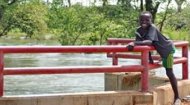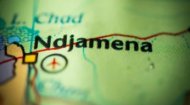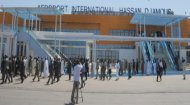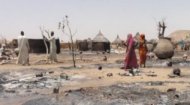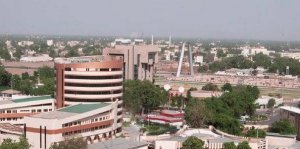|
As the capital city, N'Djamena is the undisputed economic engine of Chad. It serves as the country's primary administrative, commercial, and financial hub, concentrating most of the nation's formal employment and business activities. The city's economic profile is dominated by the service sector, accounting for a large proportion of its GDP and employment. Government administration, banking, telecommunications, and retail are major contributors.
Infrastructure development, while improving, remains a key economic challenge. The city's roads, electricity grid, and water supply systems are often inadequate to meet the demands of its growing population. Efforts are underway to modernise these sectors, with investments in road rehabilitation, power generation, and urban planning. The N'Djamena International Airport is a vital link to the outside world, facilitating trade and travel. Despite the potential for growth, high unemployment rates, particularly among youth, and widespread poverty continue to be significant economic challenges, pushing many into the informal sector or subsistence activities. N'Djamena faces a multitude of challenges that impact its development and the quality of life for its residents. Infrastructure deficits are perhaps the most visible, with many unpaved roads, irregular electricity supply, and limited access to clean water in some areas. Environmental challenges are also pressing; the city is vulnerable to the effects of climate change, including desertification and fluctuations in the Chari River's water levels, which can impact local agriculture and water availability. Waste management is another critical issue, with inadequate collection and disposal systems leading to sanitation problems. |
N'Djamena Profile |
N'Djamena Profile |
N'Djamena Profile | N'Djamena Profile |
|
|

|
Security concerns, arising from regional instability and the threat of extremist groups like Boko Haram, have historically impacted the city, necessitating a visible security presence. Public health remains a persistent challenge, with tropical diseases endemic and healthcare facilities often overloaded. Furthermore, the rapid population growth outpaces the provision of basic services, leading to overcrowding, inadequate housing, and strain on social amenities. Addressing these challenges requires sustained investment, effective governance, and collaborative efforts between local authorities, the national government, and international partners. Initiatives focusing on urban planning, renewable energy, waste recycling, and public health campaigns are seen as crucial for N'Djamena's sustainable development. The daily life in N'Djamena is a blend of traditional customs and modern aspirations, characterised by a persistent vibrancy and resilience. Mornings begin early, with the city slowly stirring to life as vendors set up their stalls, and the ubiquitous "clandos" (motorcycle taxis) and shared taxis begin ferrying commuters. Traffic, a mix of motorcycles, cars, and pedestrians, quickly builds up, creating a noisy cacophony of horns and bustling activity. Food plays a central role in daily life. Breakfast often consists of bread with coffee or tea, while lunch and dinner feature staple dishes derived from millet, sorghum, and rice, often accompanied by fish from the Chari River or various sauces and stews. Street food, from grilled meat skewers (brochettes) to local pastries, is widely available and popular. The central markets, particularly the Grand Marché, are the epicentres of daily life, offering a sensory overload of sights, sounds, and smells. Here, people haggle for everything from fresh produce and livestock to textiles, electronics, and traditional crafts. Social interaction is key, with greetings and conversations being an integral part of any transaction. Evenings often involve socialising with family and friends, perhaps at a local cafe, a tea stall, or simply at home. Football is a popular pastime, with local teams garnering passionate support. Despite the overlaying challenges, N'Djamena's residents approach daily life with remarkable adaptability and an enduring sense of community, finding joy and connection in the simple routines and shared experiences of their bustling city. While N'Djamena is not a tourist destination in the conventional sense, it offers a rich cultural experience for those willing to delve beyond the surface as the city's limited tourist attractions provide insights into Chad's history and social identity. Chad National Museum: Located close to the Kempinski Hotel, this is arguably the most significant tourist attraction, housing an impressive collection of artefacts that trace Chad's history from prehistoric times to the present. It includes archaeological finds, traditional crafts, musical instruments, and ethnographic exhibits that shed light on the nation's diverse cultures although it lost many of its exhibits during Chad's conflicts.Grand Marché (Central Market): More than just a shopping destination, the Grand Marché is an immersive cultural experience. Its vibrant energy, diverse goods, and interactions with local vendors offer an authentic glimpse into daily life and the economic pulse of N'Djamena. Chari River: Just north of N'Djamena, is the 'tourist centre' of Douguia from where you can take boat trips on the Chari River offering scenic views, particularly at sunset. Boat trips can be arranged, providing a different perspective of the city and its surroundings, and opportunities to observe local fishing practices. Cathedral of Our Lady of Peace: A prominent architectural landmark, this Roman Catholic cathedral (located at the intersection between Avenue Charles de Gaulle and Avenue FelixEboue) stands as a symbol of the Christian community and provides a serene space amidst the city's hustle. King Faisal Mosque: An impressive and beautifully designed mosque, it is a significant religious site and a testament to the city's strong Islamic heritage. Place de la Nation: A large public square featuring monuments, it serves as a gathering place and a site for national celebrations, reflecting Chadian pride and resilience. These tourist attractions, though few, offer a window into the heart of N'Djamena, allowing visitors to appreciate the city's unique character, its historical depth, and the vibrant spirit of its people. If visiting the capital, it's best to remember that N'Djamena, like the country, is very much one of two cultures of the Arabic north and the more western orientated south with its bars and live music. |
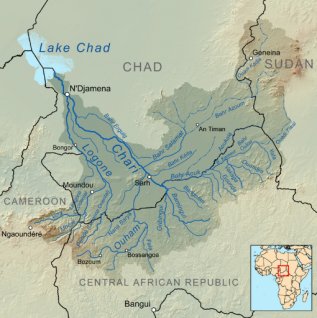 Chad's economy is heavily reliant on oil exports, and while the oil fields are located elsewhere, N'Djamena benefits indirectly through government revenue and related services. However, the city lacks significant industrial capacity beyond some light manufacturing and processing of agricultural products. Agriculture, particularly around the fertile Chari River basin, provides food for the city and supports a substantial informal economic sector, including street vendors and small-scale traders who play a crucial role in providing goods and services to the urban population. The Grand Marché (Central Market) is a bustling testament to this vibrant informal economy, where everything from foodstuffs to textiles and electronics is traded.
Chad's economy is heavily reliant on oil exports, and while the oil fields are located elsewhere, N'Djamena benefits indirectly through government revenue and related services. However, the city lacks significant industrial capacity beyond some light manufacturing and processing of agricultural products. Agriculture, particularly around the fertile Chari River basin, provides food for the city and supports a substantial informal economic sector, including street vendors and small-scale traders who play a crucial role in providing goods and services to the urban population. The Grand Marché (Central Market) is a bustling testament to this vibrant informal economy, where everything from foodstuffs to textiles and electronics is traded.